In today's diverse society, understanding and embracing cultural competency in healthcare is more important than ever. Providers who are culturally aware can better foster trust, enhance communication, and ultimately improve patient outcomes. By prioritizing these skills, healthcare professionals can create a more inclusive environment that respects and acknowledges the varied backgrounds of their patients. Join us as we delve deeper into the principles and strategies of cultural competency training to enrich your healthcare practice.

Cultural awareness and sensitivity
Cultural awareness and sensitivity are essential components of effective healthcare delivery. In diverse settings such as urban hospitals like Mount Sinai in New York City, acknowledging various cultural backgrounds influences patient interactions. Sensitivity training enhances communication skills, addressing potential biases related to race, ethnicity, and language. For example, healthcare practitioners should understand the significance of eye contact in different cultures; in some communities, it conveys respect, while in others, it may be perceived as intrusive. Conversely, dietary restrictions due to religious beliefs necessitate thoughtful menu planning in hospital food services to accommodate patients from various faiths, including Hinduism and Islam. Case studies demonstrate that cultural competency positively impacts patient satisfaction and adherence to treatments, ultimately improving health outcomes across diverse populations. Continuing education programs can facilitate the knowledge-building process for healthcare professionals, fostering an inclusive environment that respects and appreciates cultural diversity.
Language proficiency and communication skills
Healthcare professionals must possess language proficiency and effective communication skills to provide culturally competent care. Language barriers can significantly impact patient outcomes, with studies indicating that limited English proficiency (LEP) affects about 25 million individuals in the United States. Misunderstandings in medical terminology (like dosage instructions) can lead to medication errors, impacting patient safety. Training programs should emphasize understanding cultural nuances, such as non-verbal cues and health beliefs, to foster better relationships with patients from diverse backgrounds. Incorporating resources like interpreters and translation services is essential to enhance comprehension and ensure that patients fully understand their treatment plans and health conditions, particularly in large metropolitan areas such as New York City or Los Angeles, where multicultural populations are prevalent.
Patient-centered care and empathy
Patient-centered care emphasizes the importance of understanding diverse cultural backgrounds in healthcare settings. Training programs focus on enhancing empathy, a critical skill that allows healthcare professionals to connect with patients on a deeper level. Cultural competency involves recognizing and respecting varied beliefs, values, and practices, such as those related to traditional healing methods or dietary restrictions. Effective communication strategies include active listening and validating patients' experiences, ensuring that their voices are heard. Workshops often incorporate role-playing scenarios where healthcare providers navigate challenges presented by language barriers or differing health perceptions. Ultimately, these training initiatives aim to improve health outcomes, foster trust, and ensure equitable treatment for patients from all cultural backgrounds.
Bias recognition and management
Cultural competency training in healthcare focuses on the essential skill of bias recognition and management. Implicit biases, often subconscious attitudes or stereotypes that affect understanding, actions, and decisions, can significantly impact patient care. For instance, healthcare professionals may unknowingly harbor biases based on race, ethnicity, gender, or socioeconomic status, which can lead to disparities in treatment outcomes. Training programs emphasize the importance of self-awareness and the acknowledgment of one's biases, offering tools such as reflective practice and scenario-based discussions to confront and mitigate bias. Additionally, these programs often include cultural awareness techniques, focusing on specific communities, such as LGBTQ+ populations, immigrant groups, and racial minorities, to better equip practitioners with the knowledge needed for equitable healthcare delivery. Ultimately, fostering a bias-aware environment aims to enhance communication, improve patient relationships, and contribute to overall better health outcomes across diverse populations.
Continuous education and assessment
Healthcare professionals must engage in continuous education and assessment to enhance cultural competency, ensuring equitable care for diverse populations. Training programs, such as those offered by the University of Washington Center for Cultural Competence, focus on understanding cultural nuances that influence patient interactions. Evidence-based assessments, including the Cultural Competence Assessment Tool (CCAT), evaluate practitioners' awareness and skills in addressing the needs of various ethnic groups. Ongoing workshops and seminars, often conducted at community health centers, promote best practices in communication and empathy, vital for reducing health disparities among minority groups. Progress tracking, through metrics such as patient satisfaction surveys, further informs training effectiveness and identifies areas for improvement in culturally responsive care.
Letter Template For Healthcare Cultural Competency Training Samples
Letter template of invitation for healthcare cultural competency training workshop.
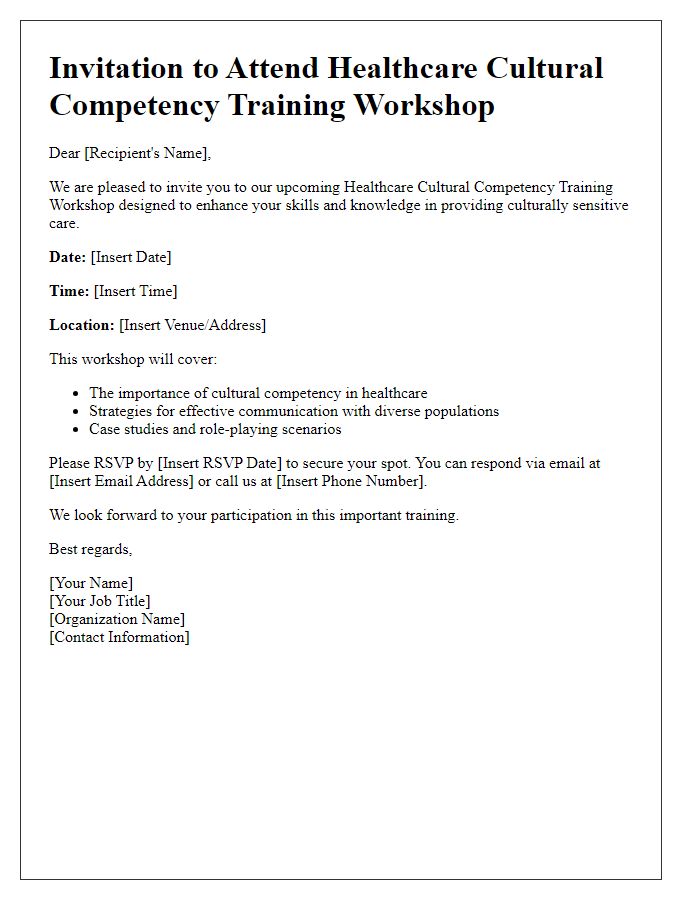
Letter template of announcement for upcoming healthcare cultural competency training session.
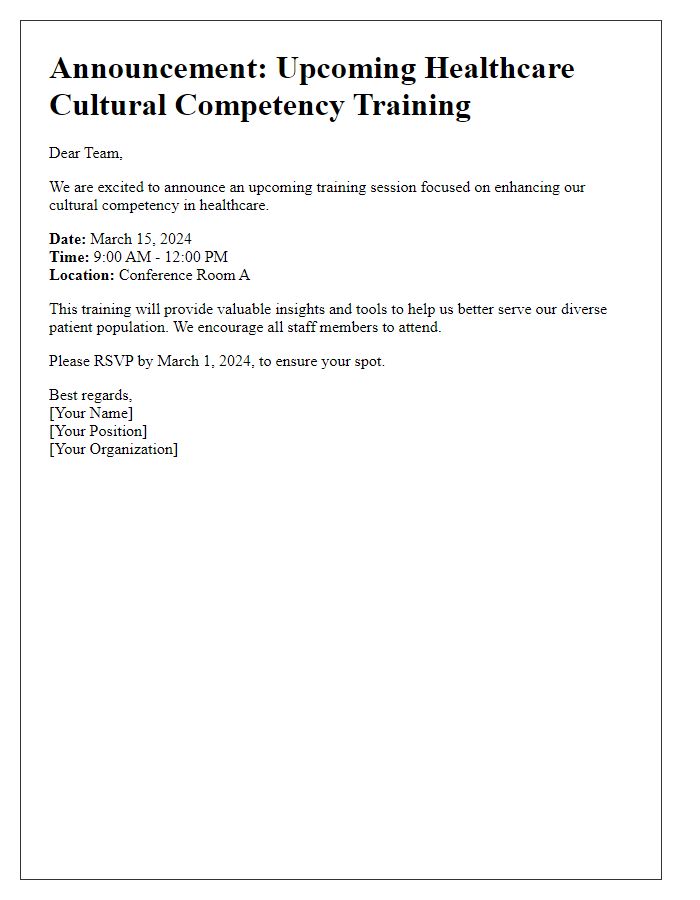
Letter template of enrollment confirmation for healthcare cultural competency training.
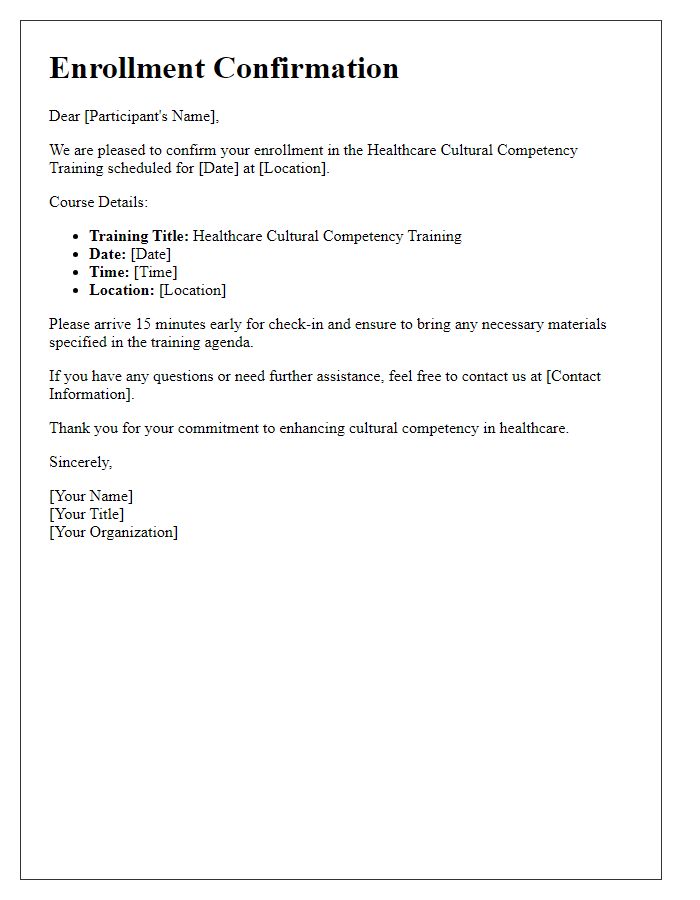
Letter template of feedback request post healthcare cultural competency training.

Letter template of agenda for healthcare cultural competency training event.
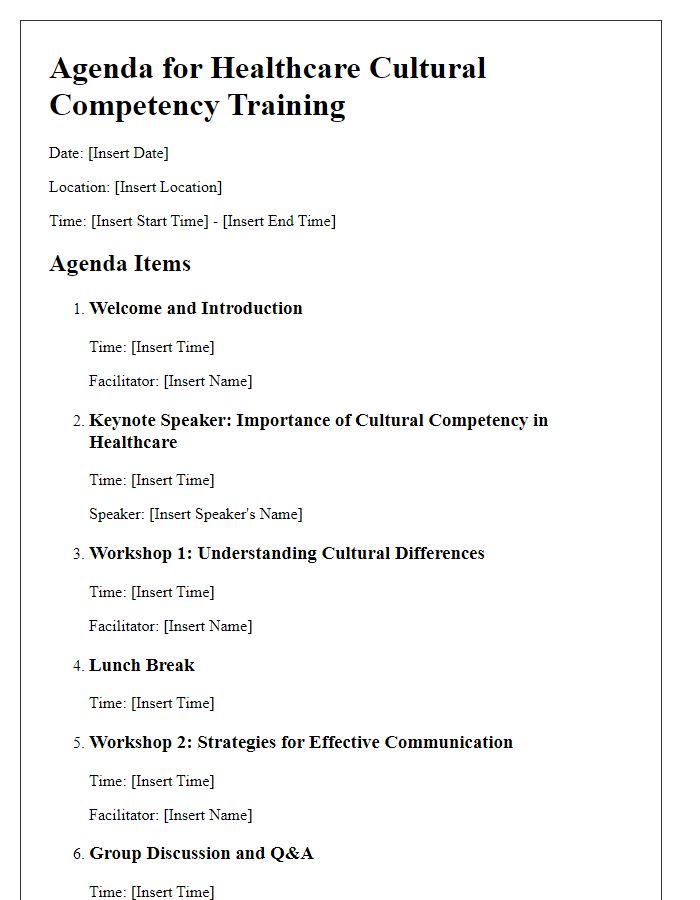
Letter template of resource sharing following healthcare cultural competency training.
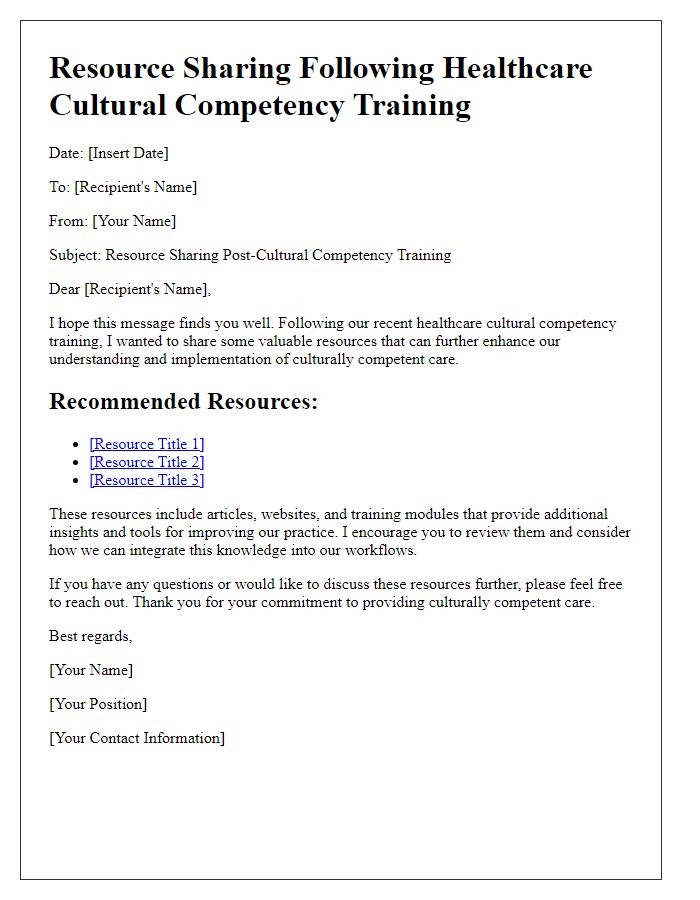
Letter template of follow-up communication for healthcare cultural competency training participants.
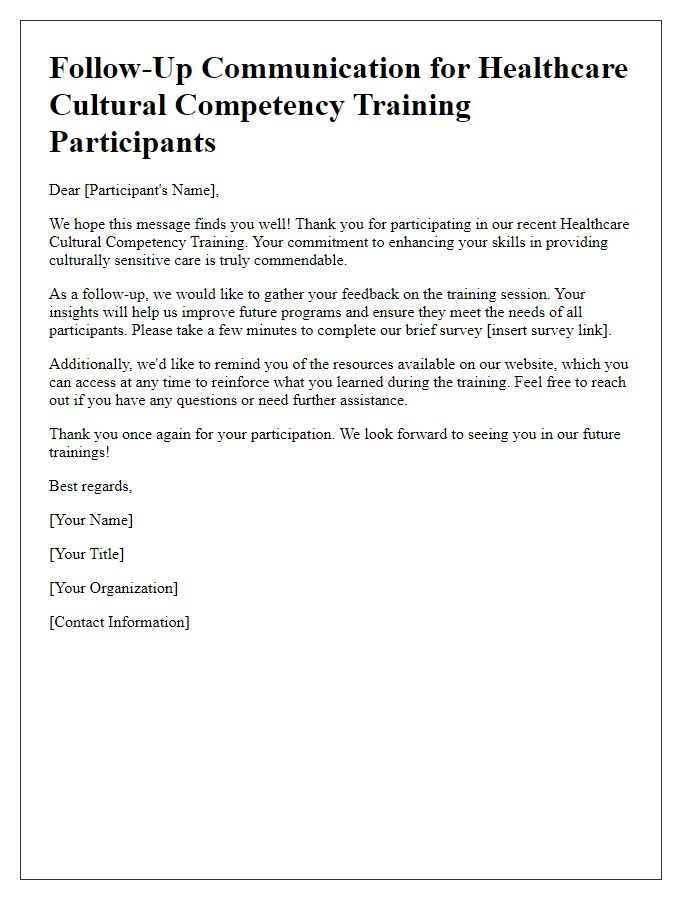
Letter template of appreciation for attending healthcare cultural competency training.
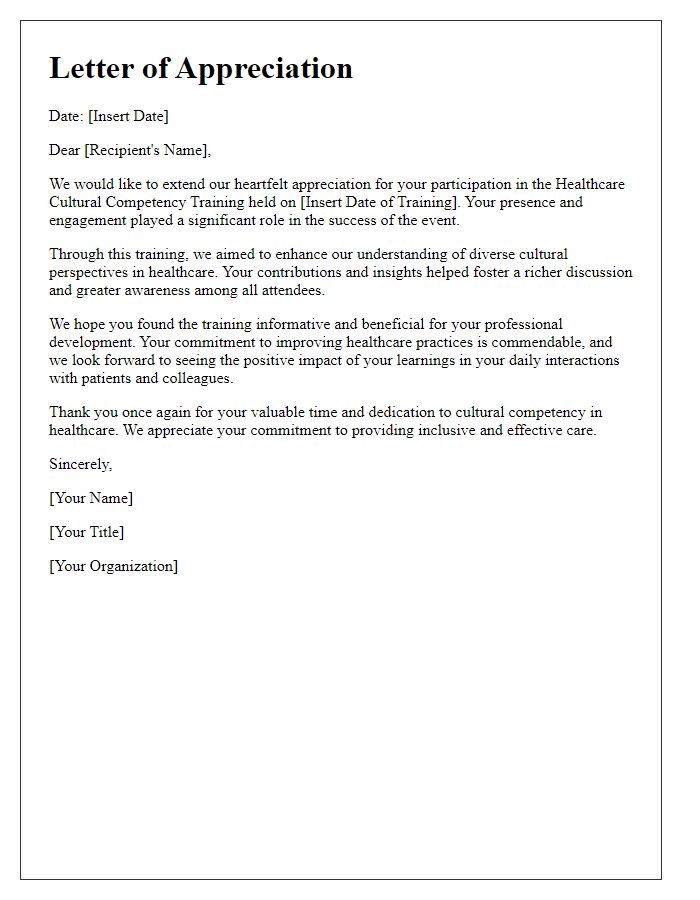
Letter template of certification issuance for healthcare cultural competency training completion.
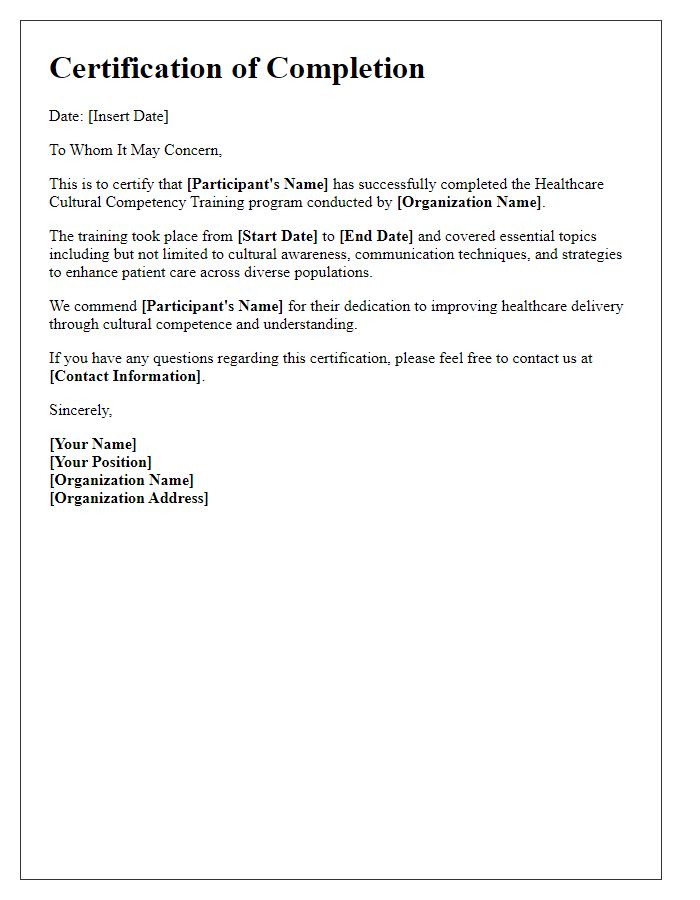

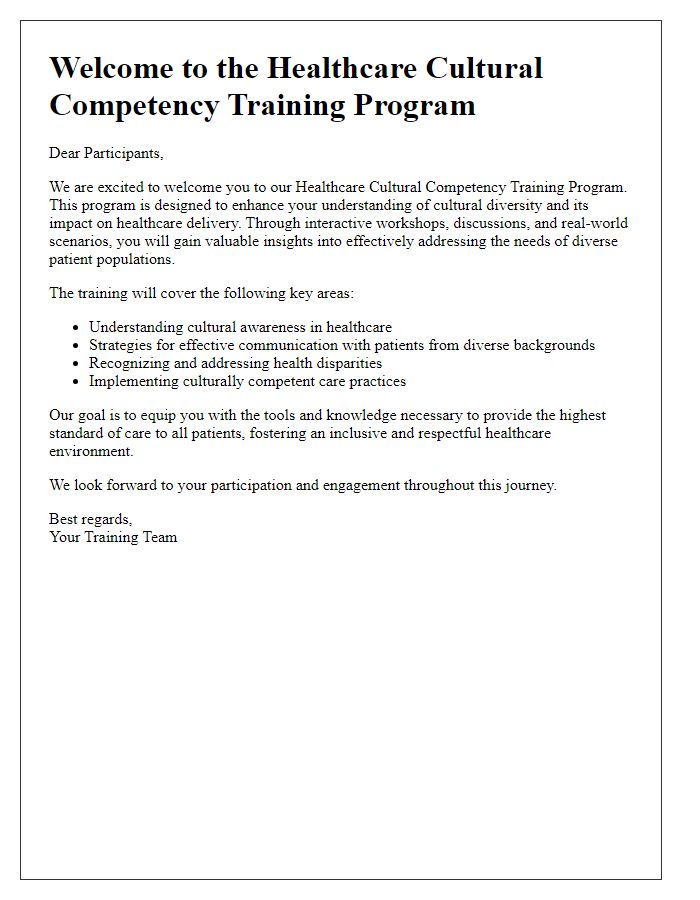

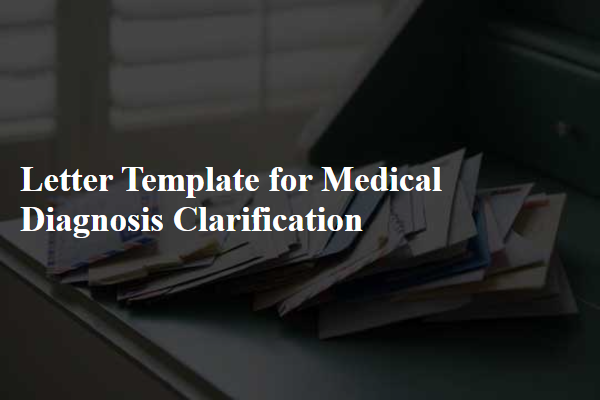
Comments